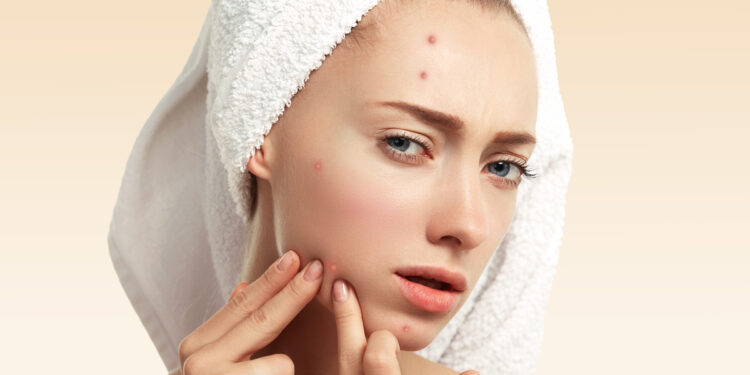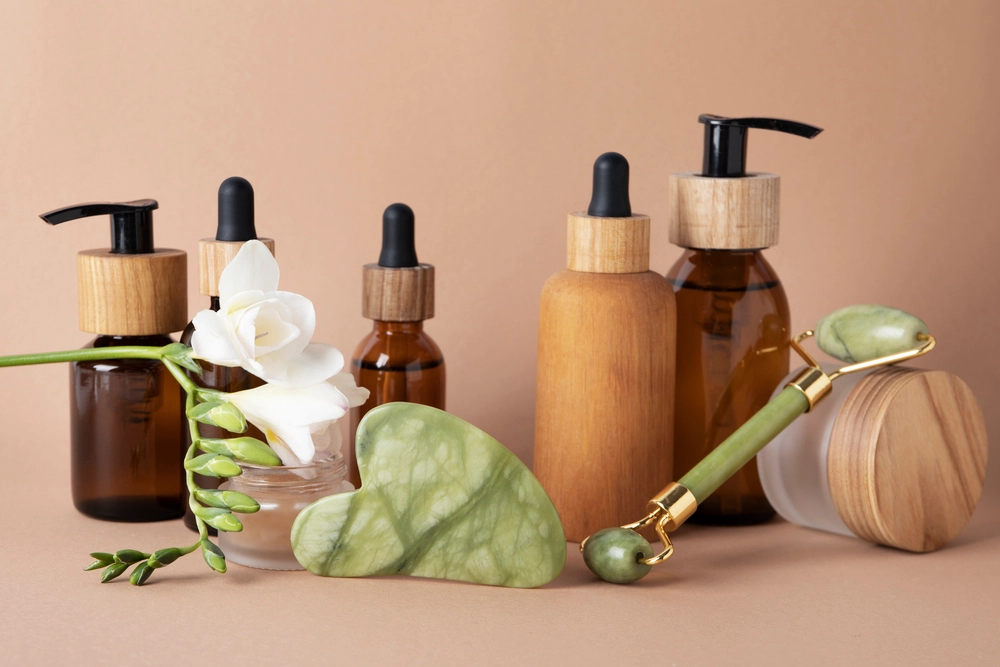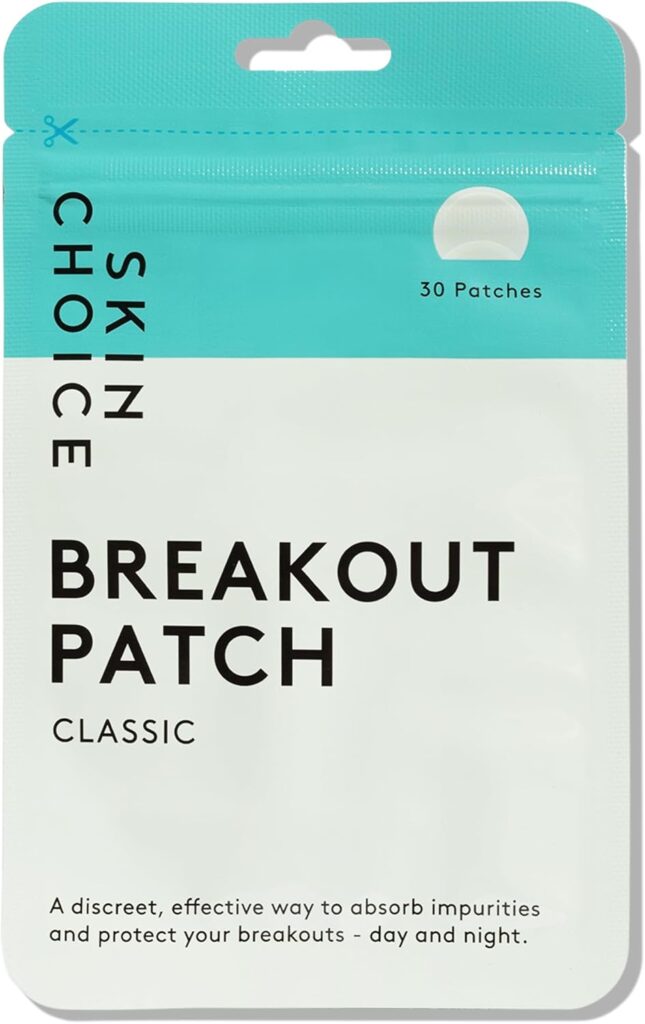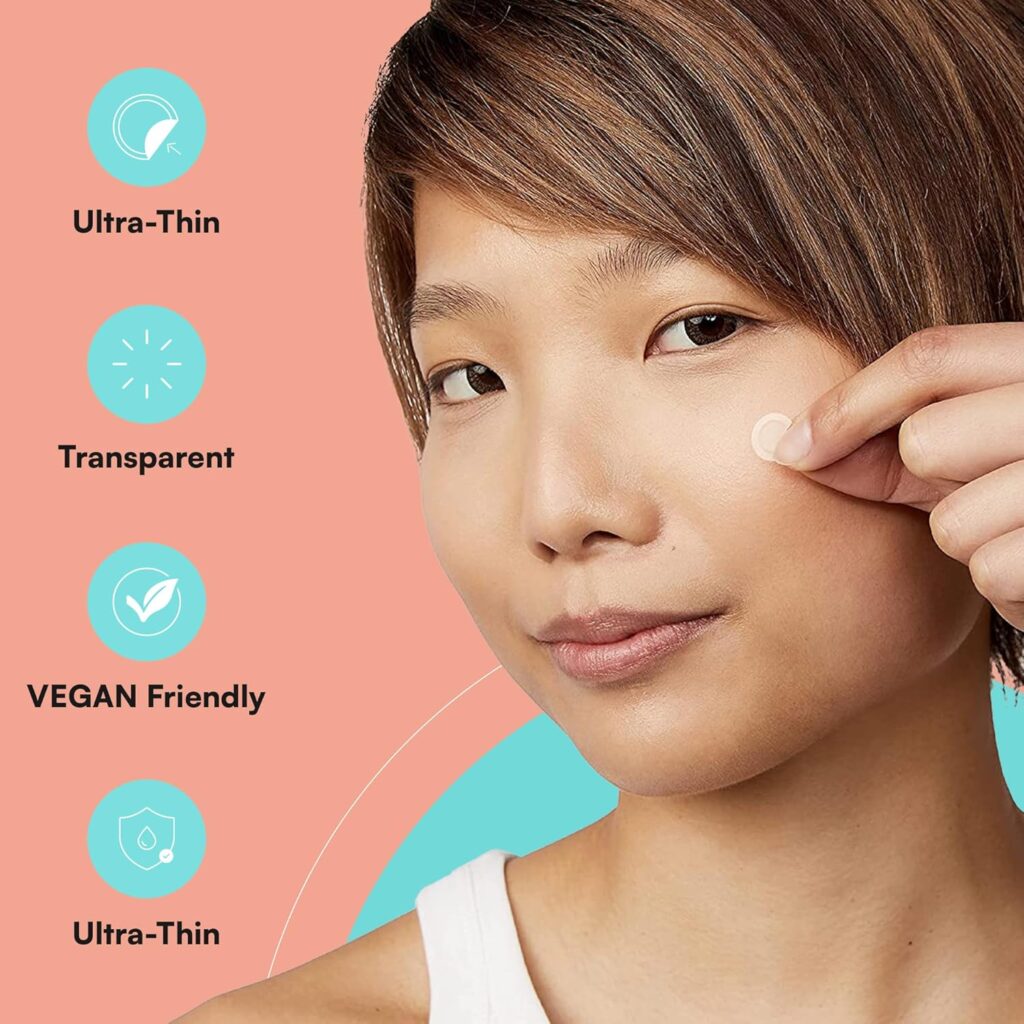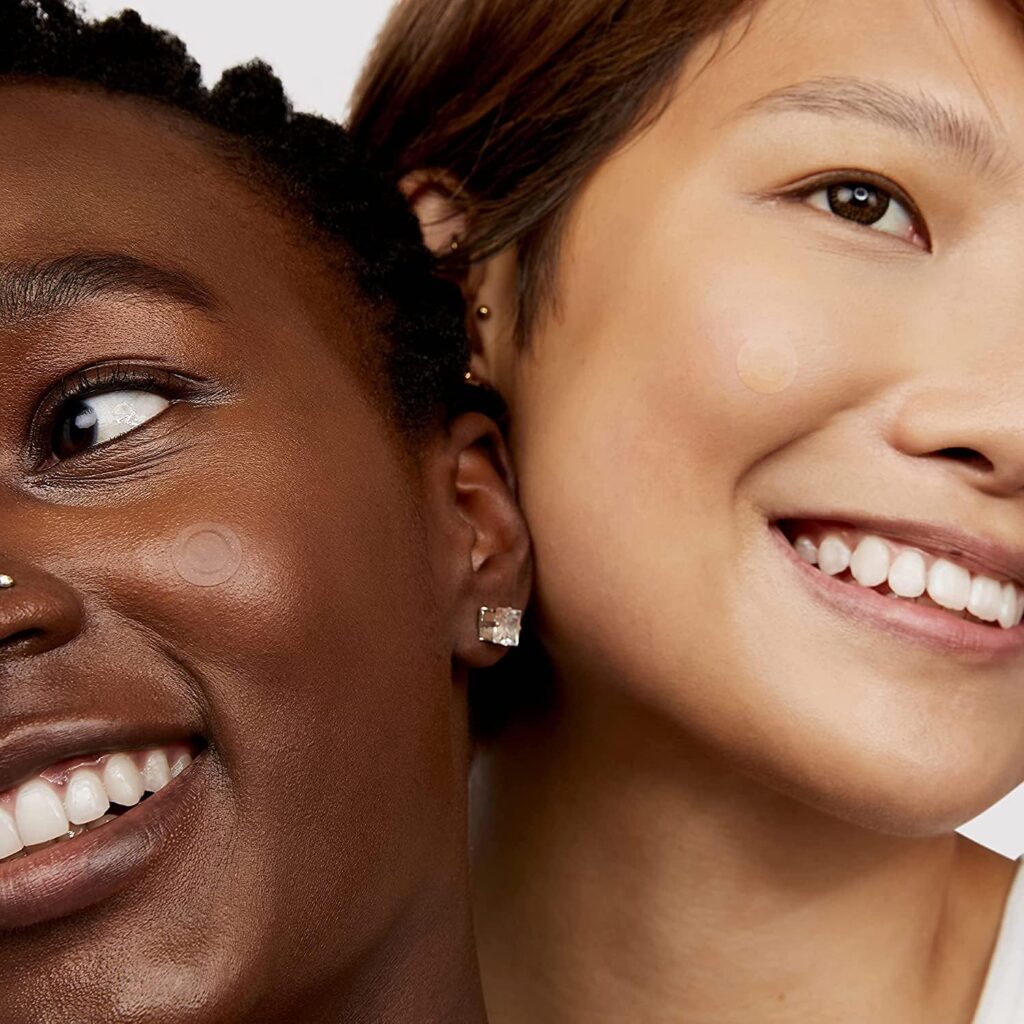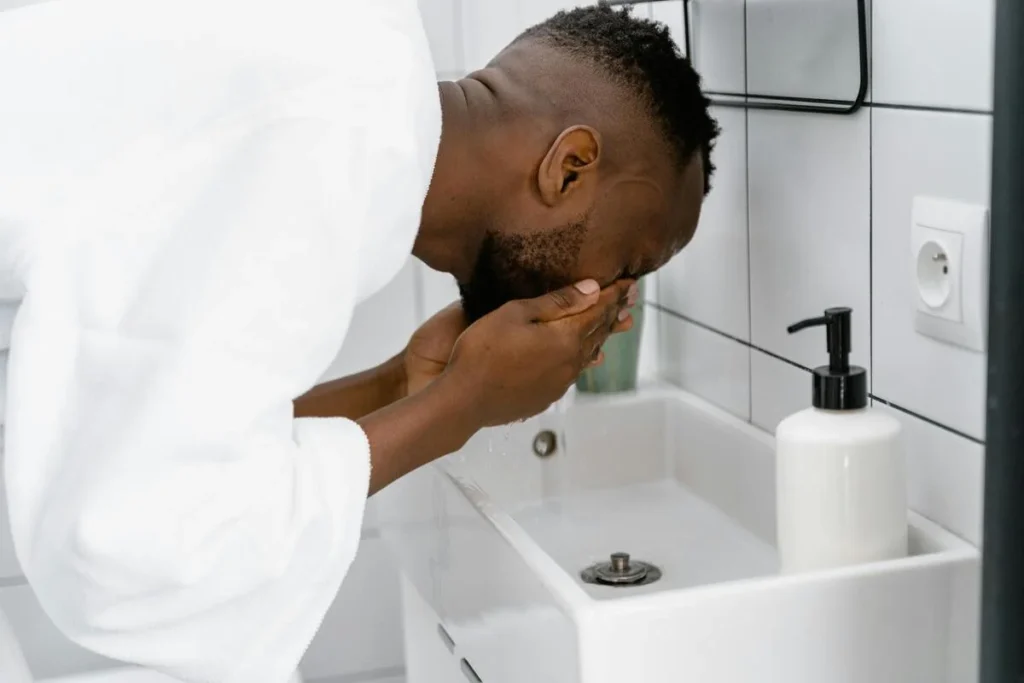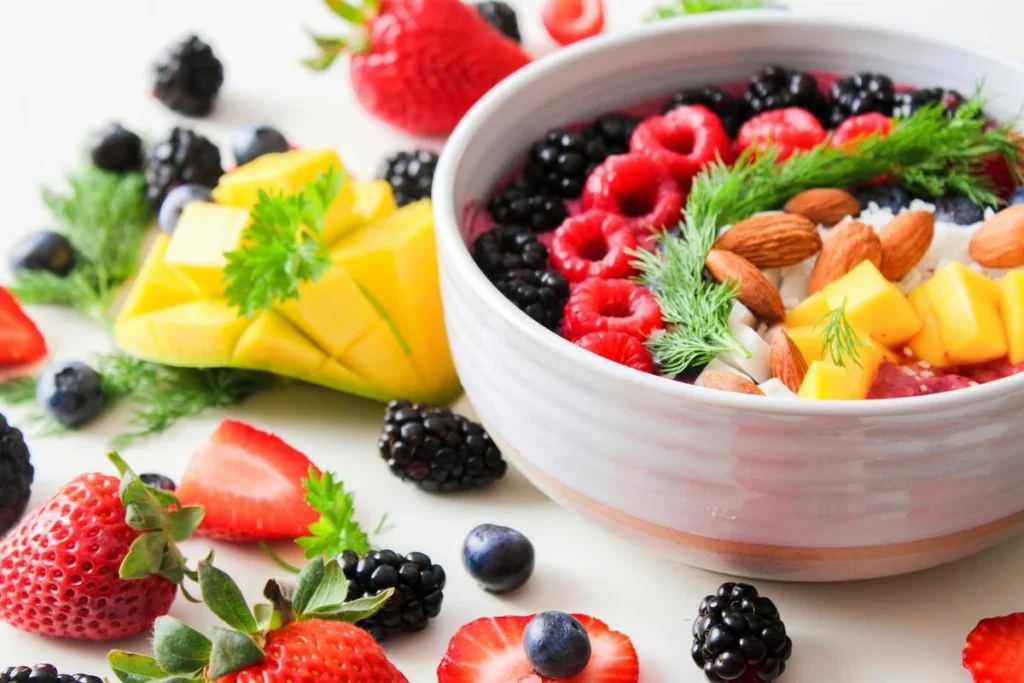Pimples (also known as zits or acne) affect nearly every single one of us at some point in our lives. These small red spots on our skin are annoying, painful and even damaging to our confidence. But what actually causes them? Is it the food we eat, the cleanliness of our skin, or just bad luck? In this essay, we’ll find out why pimples develop, what triggers them, and how we can help with them — at least in nontechnical terms. To know why pimples appear, we first need to identify what these pimples actually are.
Table of Contents
What is Pimple:
Let’s begin by learning about pimples. Pimples are tiny, itchy lumps that develop on the skin and are typically white or yellowish on top. They occur when pores of the skin (the tiny holes on our skin) become blocked. Pores are linked to glands beneath the skin that secrete an oily substance called sebum. Our skin requires sebum; it is what keeps our skin moist and hydrated. But if you’re producing too much sebum or you have excess dead skin cells, the pores can get clogged. If this happens, the skin will swell and turn into a pimple.
The Skin’s Role in Pimples
We have a truly massive organ – our skin! It shields us from germs, wicks away moisture, and is hugely responsible for regulating temperature. It also has thousands of tiny pores on it. Each pore is a tiny channel leading to an oil gland. In normal circumstances, these glands make just enough sebum to moisturize the skin. But sometimes they make too much oil and, when mixed with dead skin cells, can build up a blockage. Consider it like a blocked drain in a bathroom, the more it accumulates, the more likely it will get clogged.
The Causes of Pimples:
Hormones
Hormones are one of the main causes of pimples. Hormones are chemicals in our bodies that serve as transmitters. Hormones, and especially testosterone, go up sharply during puberty – when children become adults. This hormone spike stimulates the oil glands to secrete more sebum. And we all know that the more oil you have, the more pores you will clog. That’s why teens tend to have more pimples than adults. But hormones don’t merely affect teens. Menstrual, pregnancy or even stress-related hormonal changes cause an increase in oil production. It’s particularly interesting to note that stress can stimulate the production of cortisol, a hormone that promotes the production of oil as well. This means that stress or anxiety is also an increase of pimples!
Bacteria
Not all bacteria are bad – there are some that keep our skin healthy. But once a pore has become plugged with oil and dead skin cells, it becomes a favourable home for a particular bacteria known as Propionibacterium acnes (P. acnes). This bacteria feeds on the oil and grows inside the pore. Our body responds to this and launches immune cells to fight off the bacteria, which reddens, swells, and occasionally hurts. That is why pimples look red and swollen.
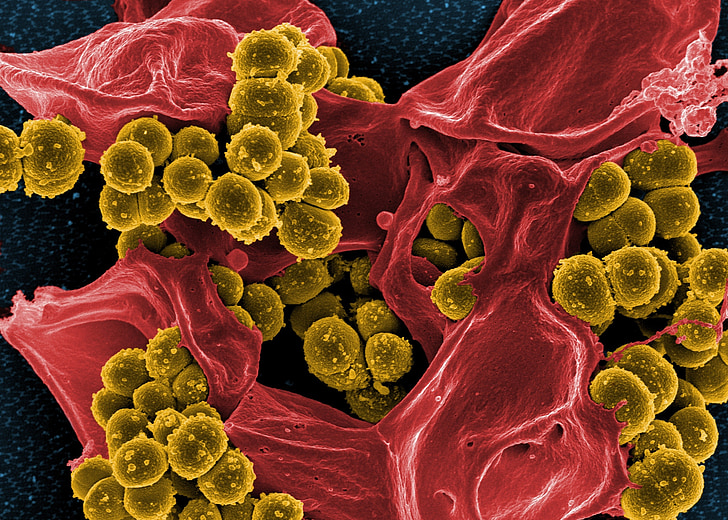
Dead Skin Cells
Dead skin cells are an integral part of our skin renewal process. Thousands of skin cells at the surface simply die and fall away each day. But sometimes they don’t shed the way they should. Dead skin cells can clump together and clog pores when they are infused with oil. If the pore remains open, a blackhead forms from exposure to air, making it black. If the pore bursts, a whitehead appears.
Diet
Digestion isn’t the major source of pimples, but certain foods cause them in some people. Consuming sugary foods, dairy foods, greasy or processed foods can elevate blood sugar and produce excess oil. It has been thought that milk and dairy might energise hormones in the body, making you pimple-prone. But everybody’s body reacts differently, and while one individual might swell up after having chocolate, another may have absolutely no effect.
Skin Care Products and Makeup
Products we apply to our skin can clog the pores and produce pimples. This is why you want products that are “non-comedogenic” or “oil-free” because they won’t block pores. Wearing a thick or greasy foundation might keep dirt and oil on the face, making it more prone to acne. It’s also an issue if you neglect to wash your face prior to going to bed
Genetics
Genetics play a role too. If your parents had pimples, then you might be more susceptible to pimples too. It’s possible to be genetically based on how much oil your skin produces and how hormonally reactive you are.
Breakout Patch Classic to wear under makeup
This is a Promotional product
Types of Pimples
All pimples aren’t the same. Here’s a quick overview:
- Whiteheads: White, tiny bumps produced by plugged pores that remain closed at the surface.
- Blackheads: These are ingrown pores clogged with dead skin and oil. They are darkened because the oil in them oxidises in the air.
- Papules: Small, red, delicate bumps formed as the walls of the pores break down.
- Pustules: White or yellowish-red pimples containing pus from bacteria inside the pore.
- Cysts: Thick, aching bumps that lie underneath the skin, usually caused by a massive pore infection.
How to Manage and Prevent Pimples
Although pimples are a natural and sometimes unavoidable condition, there are ways to handle them and prevent them:
- Cleanse Regularly
Using a mild cleanser twice a day helps to get rid of oil, grime, and dead skin cells. But don’t wash too hard, because this leaves the skin dry and produces more oil. - Avoid Touching Your Face
Dirt and bacteria in our hands get absorbed onto our skin when we touch it, which makes pimples more likely. - Use Non-Comedogenic Products
Consider choosing items that won’t clog your pores, such as oil-free or non-comedogenic make-up, sunscreen, and lotions. - Moisturize
Even oily skin needs hydration. A light, oil-free moisturizer can help to regulate your skin and prevent over-oiling it. - Healthy Diet
Adding more fruits, vegetables and whole grains can help your skin. Water also keeps the skin hydrated and avoids excessive oiliness.
- Don’t Pop Pimples
When you squeeze or pop pimples, the bacteria will travel deeper into the skin, inflaming the pimple and leaving scars. - Consider Over-the-Counter Treatments
Use ingredients such as benzoyl peroxide, salicylic acid or sulphur to diminish pimples by destroying bacteria, drying excess oil, or scrubbing away dead skin cells.
Pimples are a part of our lives, especially when you’re going through a hormonal transition. They’re frustrating, but when we understand why they emerge, we can cope and even avoid them. They tend to be caused by hormones, bacteria, diet, genes and everything else that affects our skin. Maintaining a good skincare routine, eating a healthy diet and paying attention to what we put on our skin will reduce the likelihood of pimples and keep it glowing. Remember, it’s ok to have pimples and they are not your identity!
